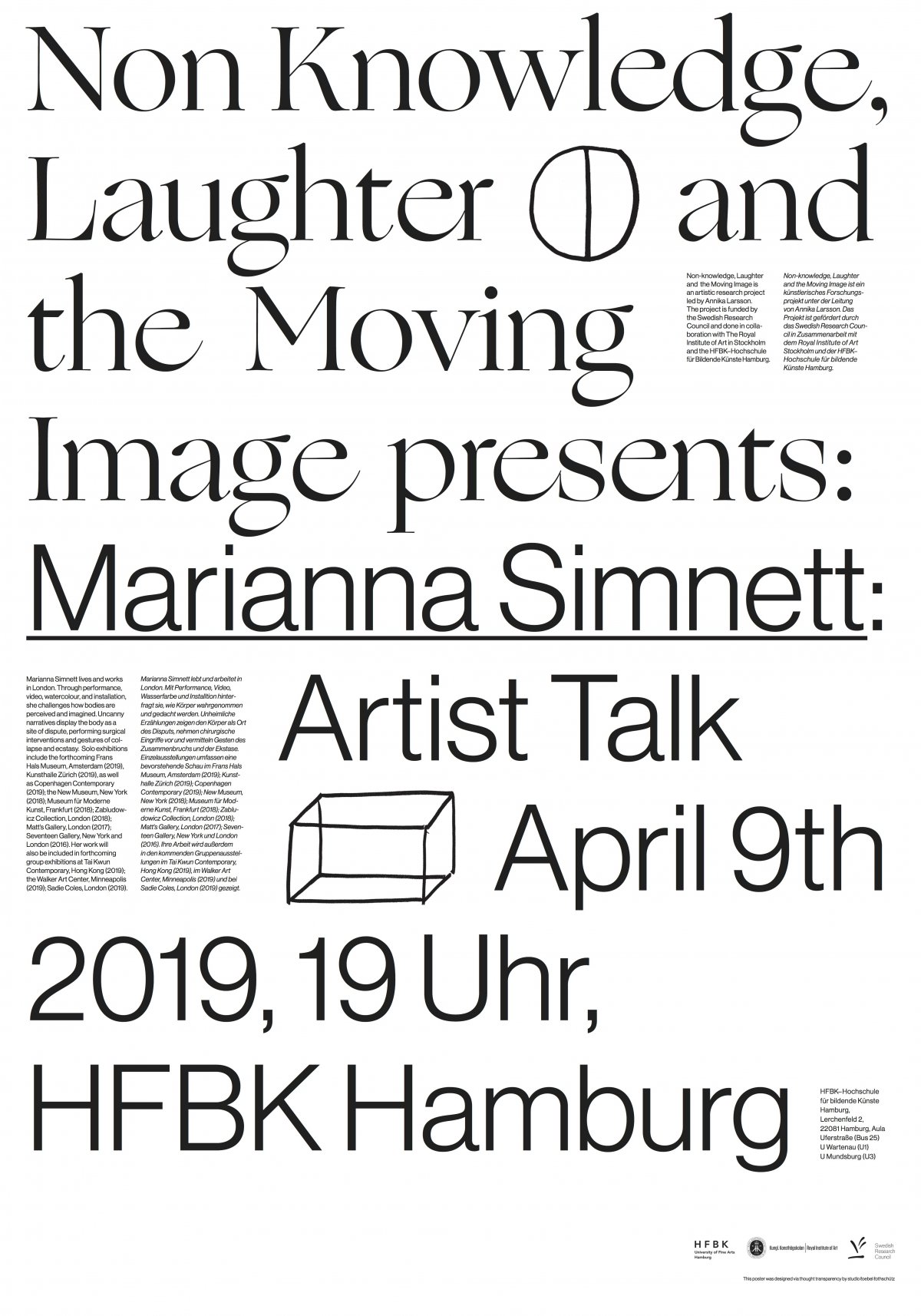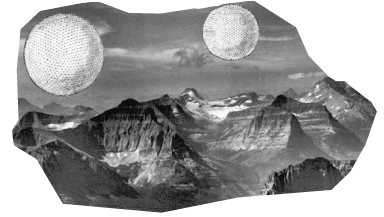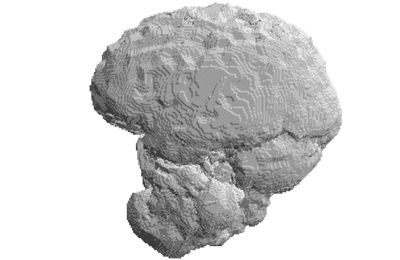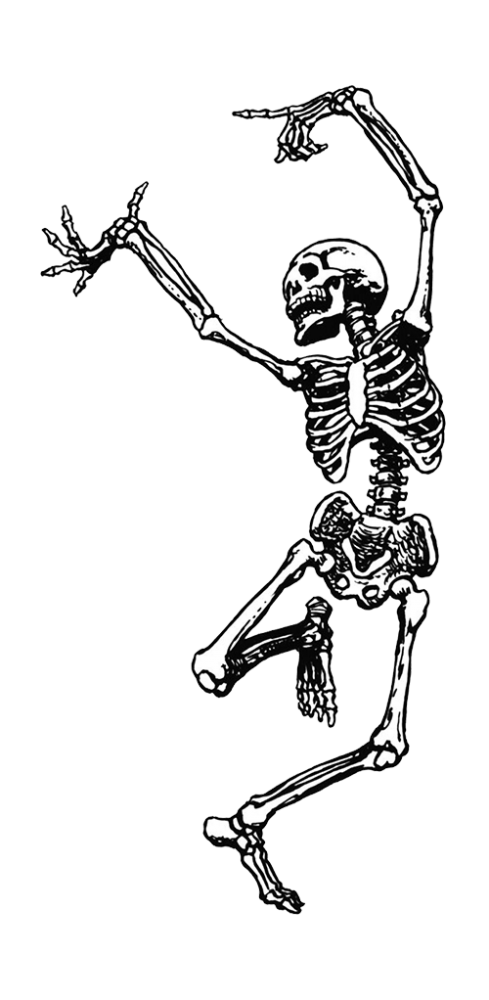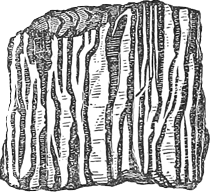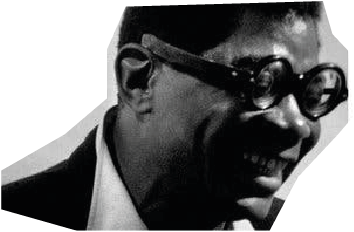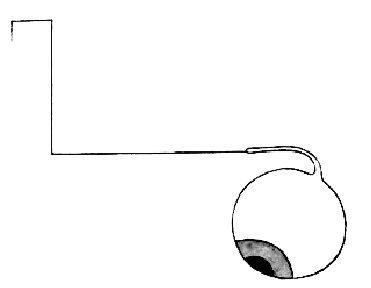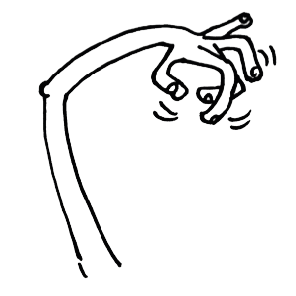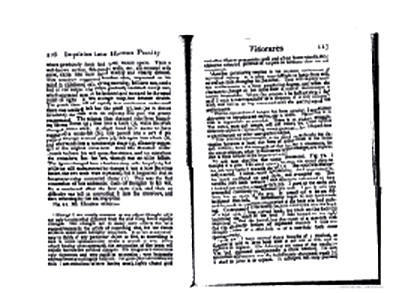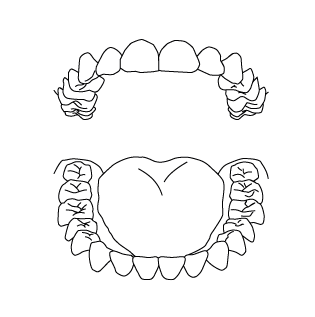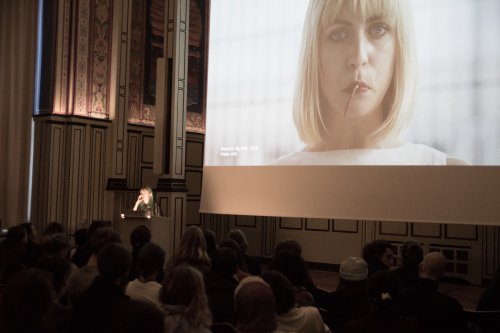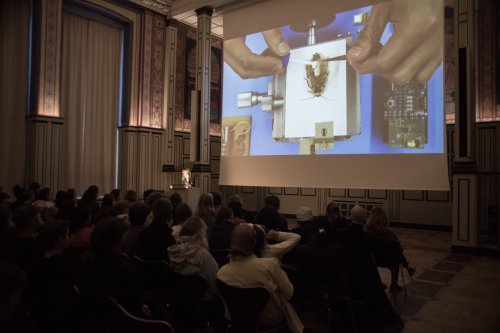Non-knowledge, Laughter & The Moving Image presents: Marianna Simnett
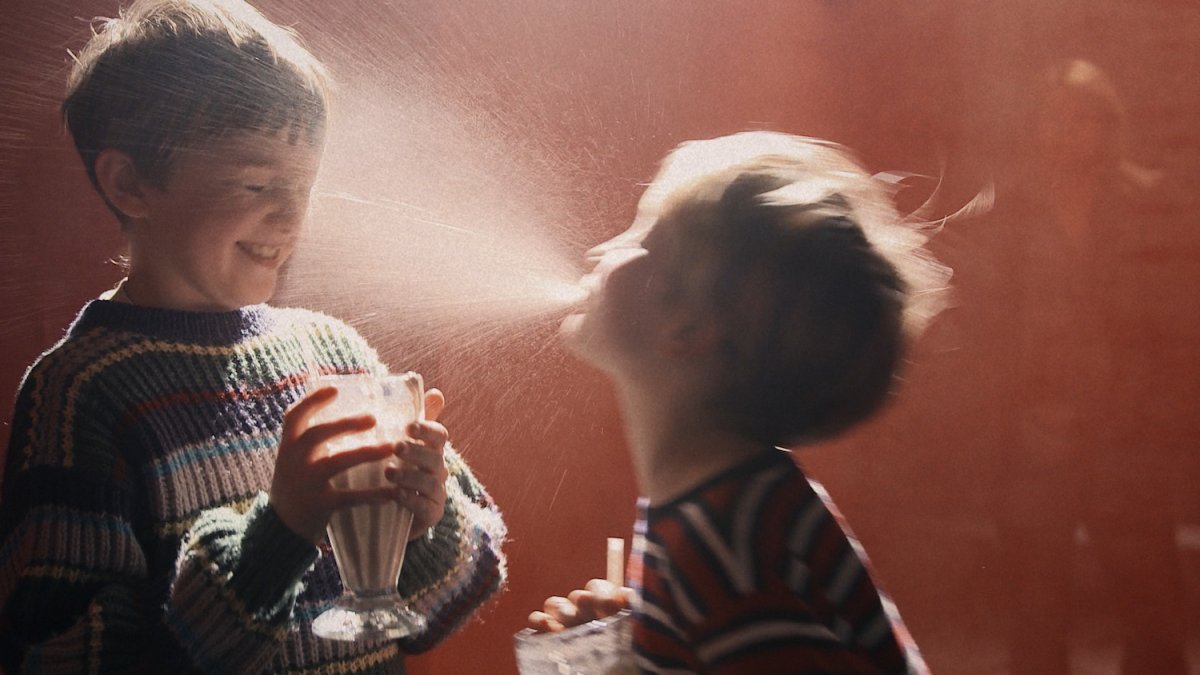
Non-knowledge, Laughter & The Moving Image presents:
Marianna Simnett
Artist Talk
April 9th 2019
HFBK, Hamurg
Marianna lives and works in London, and works between performance, video, watercolour, and installation. Her solo exhibitions include the forthcoming Frans Hals Museum, Amsterdam (2019), Kunsthalle Zürich, Zurich (2019), as well as Copenhagen Contemporary (2019); the New Museum, New York (2018); Museum für Moderne Kunst, Frankfurt (2018); Zabludowicz Collection, London (2018); Matt’s Gallery, London (2017); Seventeen Gallery, New York and London (2016). Her work will also be included in forthcoming group exhibitions at Tai Kwun Contemporary, Hong Kong (2019); the Walker Art Center, Minneapolis (2019); Sadie Coles, London (2019).
Especially interesting for this research project is Marianna´s strong focus of the body -- the grotesque body - the leaking body - the contaminating body - the body without fixed borders between I and the other. Equally interesting are that her explorations of the contaminating body are not staying as topic on the screen but also are being explored outside the screen in the confrontation with the viewer. To watch Marianne´s work is a physical experience, in where our bodies often react before our minds, in ways beyond our control (through repulsion, nausea, jumps, squirms, perhaps laughter and even vomit and fainting the rumours say). In common for these reactions are they for a moment destabilise us as rational beings and brings us into moments in where the body is in control over the mind rather than reverse, thus reminding us about their co-dependence.
In her work Marianna challenges how bodies are perceived and imagined. And her uncanny narratives display the body as a site of dispute, performing surgical interventions and gestures of collapse and ecstasy.
The word ecstasy comes from the Greek word ekstasis meaning ‘standing outside oneself’. One of the questions this research project is asking is if perhaps these moments of “standing outside oneself’ or becoming “beside ourselves” could lead towards more social, dependent, and relational mode of existence?
Link to talk:podcampus.de/nodes/RLvAx
